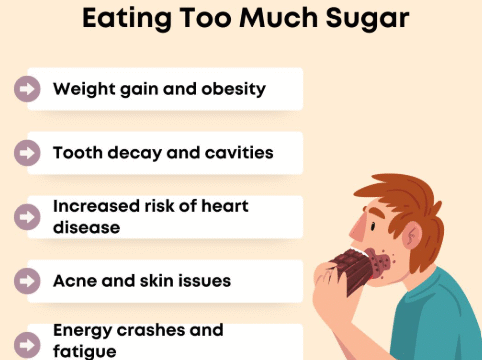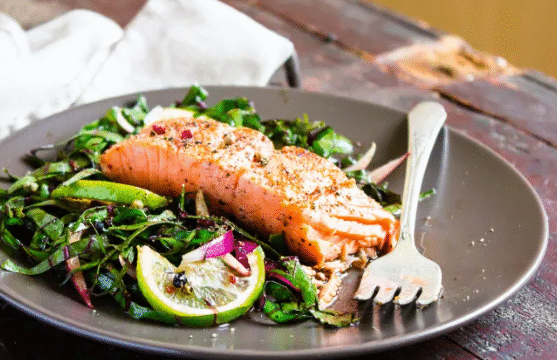Creating fitness goals can be exciting, but it can also feel challenging when you are unsure where to start or how to stay motivated.
Many people begin their fitness journey with big plans but struggle to maintain consistency.
The secret to lasting progress lies in setting goals that feel genuinely rewarding.
When your fitness goals bring you joy, confidence, and a sense of accomplishment, they become part of your daily rhythm instead of a burden. Building rewarding fitness goals means understanding your personal motivation, celebrating small successes, and approaching progress with patience and positivity. The first step in creating rewarding fitness goals is to define what “rewarding” means to you. Everyone’s reason for exercising is different. Some people may seek more energy, while others want to build strength, improve flexibility, or simply feel better in their own bodies. When your goals are based on your personal values rather than outside pressure, they feel more meaningful. Reflecting on why you want to improve your fitness helps guide your focus and gives your actions purpose. Once you know your reason, it is easier to shape goals that fit your lifestyle. A rewarding fitness plan should feel achievable and flexible, not rigid or overwhelming. Start with smaller goals that can grow over time. For instance, if your goal is to walk more, you could begin with ten minutes a day and gradually increase as it becomes a comfortable habit. Each small step you complete successfully adds to your confidence and makes the experience enjoyable. The sense of progress itself becomes a reward. Another important part of setting rewarding goals is to focus on the process, not just the outcome. Many people get discouraged when they focus only on the final result, such as reaching a certain weight or completing a long race. The most fulfilling part of fitness comes from noticing how your body and mind change along the way. You may discover that you sleep better, think more clearly, or have more energy. When you recognize and appreciate these everyday improvements, your motivation deepens. Fitness begins to feel like a form of self-care rather than a task. It is also helpful to make your goals specific but gentle. Instead of vague goals like “get fit,” choose something you can measure or track without stress, such as “exercise three times a week” or “stretch for ten minutes every evening.” These smaller, clear targets give you something to look forward to and celebrate when completed. Keeping your expectations realistic ensures that your goals remain friendly and attainable rather than frustrating. Rewarding fitness goals also work best when they include variety. Repeating the same workout every day can quickly become boring, but trying different forms of movement keeps your body and mind engaged. You might alternate between walking, yoga, swimming, or dancing. The change in pace not only prevents fatigue but also helps you discover new ways to enjoy being active. When your routine feels fresh, staying consistent feels easier. One powerful yet often overlooked part of rewarding fitness is listening to your body. Fitness should make you feel better, not worse. If an activity causes pain or exhaustion, it might be time to adjust your approach. Rest, recovery, and gentle days are essential parts of long-term success. When you allow your body to recover properly, your energy returns stronger, and your motivation stays high. Respecting your body’s signals turns your fitness plan into a sustainable and nurturing experience. Mindset plays a major role in making your goals feel fulfilling. Instead of seeing exercise as something you “must do,” try viewing it as something you “get to do.” This small shift in thinking transforms fitness from obligation to privilege. Appreciating what your body is capable of can make every session feel more rewarding. Gratitude for movement—no matter how small—creates a positive emotional connection to your goals and encourages consistency. A simple but effective way to keep your goals rewarding is to celebrate every bit of progress. It could be finishing a workout even when you were tired, improving your posture, or noticing that daily tasks feel easier. These little victories remind you that you are moving forward. Acknowledging progress does not require big rewards; even saying “I did it” to yourself can spark pride and motivation. Over time, celebrating these moments reinforces your commitment and makes fitness feel naturally satisfying. Environment can influence how rewarding your fitness routine feels. Create a space that inspires you to move. You might play uplifting music, exercise outdoors, or use a spot in your home where you feel relaxed and focused. A pleasant environment makes it easier to enjoy the process and stay consistent. If you enjoy your surroundings, the act of exercising becomes something you look forward to instead of something you postpone. Support from others can also make your goals more fulfilling. Sharing your journey with a friend, family member, or group provides encouragement and accountability. Having someone celebrate your progress with you amplifies the sense of achievement. Fitness can sometimes feel like a solitary pursuit, but when it becomes a shared experience, it brings joy and connection. You may even inspire others to start their own positive routines. Nutrition and rest are essential companions to rewarding fitness goals. A balanced diet fuels your energy and helps your body recover. Instead of focusing on restrictions, think about nourishment—adding foods that make you feel strong, hydrated, and refreshed. Sleep, too, is part of progress. When you rest well, your body rebuilds muscle and your mind resets, helping you feel ready for the next day’s activities. Treating recovery as part of your fitness journey rather than a pause makes the process smoother and more enjoyable. It is natural to face challenges along the way, but how you respond to them determines how rewarding your goals remain. Progress rarely happens in a straight line. There may be days when you feel less motivated or results seem slow. Instead of seeing these moments as failure, view them as part of growth. Every effort, even the small ones, contributes to improvement. Kindness toward yourself during setbacks builds resilience and keeps your motivation alive. Keeping a simple record of your journey can make progress feel even more meaningful. You might write a short note after each workout describing how you felt or what you accomplished. Looking back after a few weeks can remind you of how far you have come, even if you did not notice the changes day by day. Seeing your consistency on paper can be deeply satisfying and encourage you to continue. Rewarding goals also evolve as you grow. What feels motivating now may change in a few months. Be open to adjusting your plan based on your new strengths and interests. For example, if walking was your first goal, you might later try light jogging or a new form of movement. Adapting your goals keeps them aligned with your personal growth and prevents boredom. Fitness becomes a journey of discovery rather than repetition. Above all, the most rewarding fitness goals are those that make you feel good inside and out. They should support your energy, your mood, and your sense of well-being. Progress feels most satisfying when it enhances your daily life rather than interrupts it. You do not need to chase perfection; you simply need to create habits that make you proud of your effort and happy with your growth. Building fitness goals that feel rewarding is about nurturing a relationship with yourself that values patience, positivity, and balance. When you approach fitness with kindness and curiosity, you discover that progress is not just about how far you can run or how much you can lift—it is about how good you feel while doing it. The reward lies in knowing you are caring for your body and mind in ways that strengthen both. Over time, these rewarding habits turn into a lifestyle. Your confidence grows, your energy improves, and your daily routine feels more grounded. Fitness becomes something you enjoy rather than something you must push through. Each step, stretch, or mindful breath becomes a symbol of your commitment to health and happiness. When you build fitness goals that feel rewarding, you build a stronger, more balanced version of yourself—one that thrives with consistency, gratitude, and joy. Would you like me to expand this article with SEO keywords, a meta description, and Google AdSense–friendly optimization for better online visibility?






